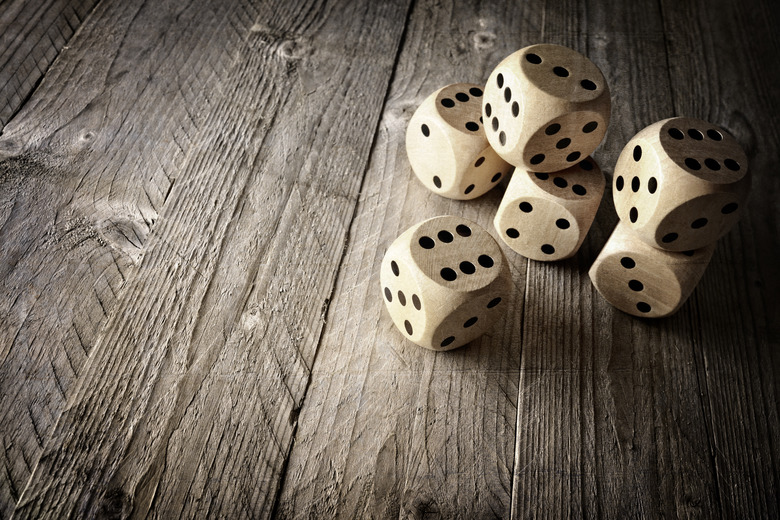Different Kinds Of Probability
Look up at the sky. Will it rain tomorrow? Cues from the environment may lead you to make an educated guess about tomorrow's weather. A meteorologist has access to a great deal of statistical data to make an even more informed prediction about the probability of rain or shine, and sophisticated weather models might be even more precise. Whether it's the weather or the next roll of the dice, no one knows for sure what the future will bring. But we can use various types of probability strategies to come up with our best guess.
For a refresher course on the basics of probability, view the video below:
Classic Probability
Classic Probability
The classical approach to probability often involves coin tossing or rolling dice. It is calculated by listing all of the possible outcomes of the activity and recording the actual occurrences. For example, if you are tossing a coin, the possible outcomes are either heads or tails. If you toss the coin 10 times, you record which outcome occurred each time you tossed the coin.
Experimental Probability
Experimental Probability
Experimental probability is based on the number of possible outcomes by the total number of trials. When tossing a coin, the total possible outcomes are two, heads and tails. The total number of trials is determined by the total times the coin is flipped. If the coin is flipped 50 times and it lands on heads 28 times, then the theoretical probability is 28/50.
Theoretical Probability
Theoretical Probability
Theoretical probability is an approach that bases the possible probability on the possible chances of something happen. For example, if you want to know the theoretical probability that a die will land on a number "3" when rolled, you must determine how many possible outcomes there are. On a die, there are six numbers, offering six possibilities. To land on a three, you have a one-in-six, or 1:6, chance of it landing on a "3".
Subjective Probability
Subjective Probability
Subjective probability is based on a person's own personal reasoning and judgment. It is the probability that the outcome a person is expecting will actually occur. There are no formal calculations for subjective probability but instead it is based on a person's own knowledge and feelings. For example, during a sport's game, a fan of one team may state that the team they are rooting for will win. The person bases his decision on facts or opinions regarding the game, the two teams and the likelihood of the team winning.
Cite This Article
MLA
VanBaren, Jennifer. "Different Kinds Of Probability" sciencing.com, https://www.sciencing.com/different-kinds-probability-8526104/. 12 November 2018.
APA
VanBaren, Jennifer. (2018, November 12). Different Kinds Of Probability. sciencing.com. Retrieved from https://www.sciencing.com/different-kinds-probability-8526104/
Chicago
VanBaren, Jennifer. Different Kinds Of Probability last modified March 24, 2022. https://www.sciencing.com/different-kinds-probability-8526104/
